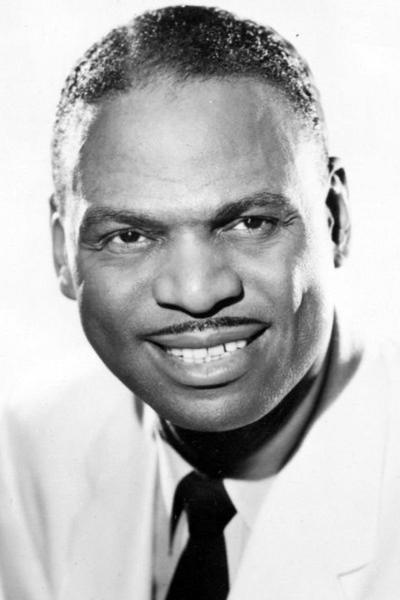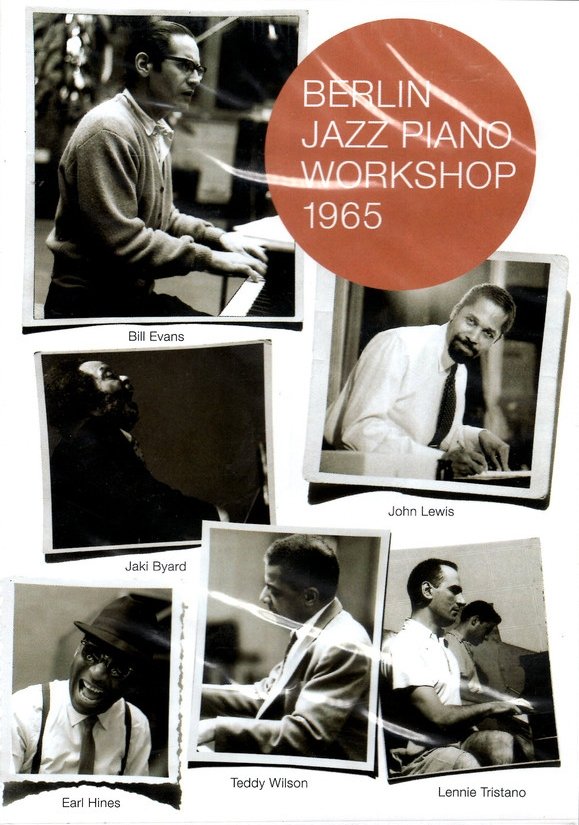

Berlin's 1965 Jazz Piano Workshop reunited some of the instrument's finest exponents from the full stylistic spectrum of jazz piano. The great Teddy Wilson was on hand to represent the swing piano style; the father of jazz piano improvisation Earl Hines was also present; Lennie Tristano served as an exponent of modern exploratory piano playing; two of the idiom's most lyrical modern pianists, Bill Evans and John Lewis were in attendance, and a nexus between the traditional and the modern, Jaki Byard -who alternated free and stride passages on the same tune- filled out this historical lineup. A notable absence was pianist Bud Powell, who was then living a troublesome period which would end with his death the following year. The two other main influences missing from the performance were Thelonious Monk, who was touring Europe with his own band, and Art Tatum, who had died in 1956.
Earl Kenneth Hines, also known as Earl "Fatha" Hines (December 28, 1903 – April 22, 1983), was an American jazz pianist and bandleader. He was one of the most influential figures in the development of jazz piano and, according to one source, "one of a small number of pianists whose playing shaped the history of jazz". The trumpeter Dizzy Gillespie (a member of Hines's big band, along with Charlie Parker) wrote: "The piano is the basis of modern harmony. This little guy came out of Chicago, Earl Hines. He changed the style of the piano. You can find the roots of Bud Powell, Herbie Hancock, all the guys who came after that. If it hadn't been for Earl Hines blazing the path for the next generation to come, it's no telling where or how they would be playing now. There were individual variations but the style of … the modern piano came from Earl Hines." The pianist Lennie Tristano said, "Earl Hines is the only one of us capable of creating real jazz and real swing when playing all alone." Horace Silver said, "He has a completely unique style. No one can get that sound, no other pianist". Erroll Garner said, "When you talk about greatness, you talk about Art Tatum and Earl Hines". Count Basie said that Hines was "the greatest piano player in the world". Earl Hines was born in Duquesne, Pennsylvania, 12 miles from the center of Pittsburgh, in 1903. His father, Joseph Hines, played cornet and was the leader of the Eureka Brass Band in Pittsburgh, and his stepmother was a church organist. Hines intended to follow his father on cornet, but "blowing" hurt him behind the ears, whereas the piano did not. The young Hines took lessons in playing classical piano. By the age of eleven he was playing the organ in his Baptist church. He had a "good ear and a good memory" and could replay songs after hearing them in theaters and park concerts: "I'd be playing songs from these shows months before the song copies came out. That astonished a lot of people and they'd ask where I heard these numbers and I'd tell them at the theatre where my parents had taken me." Later, Hines said that he was playing piano around Pittsburgh "before the word 'jazz' was even invented". ... Source: Article "Earl Hines" from Wikipedia in English, licensed under CC-BY-SA 3.0.
By browsing this website, you accept our cookies policy.